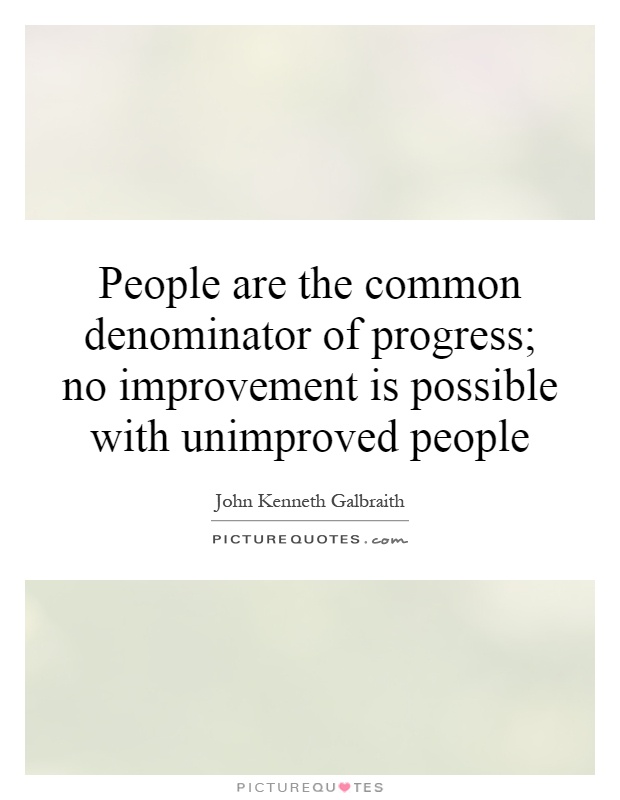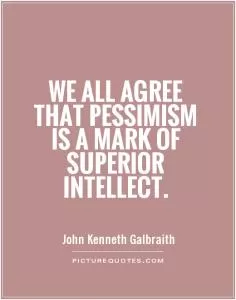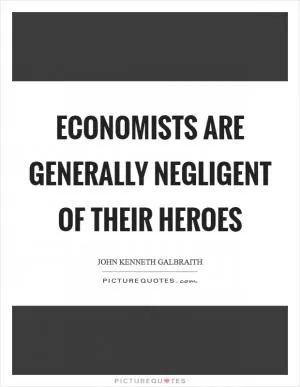People are the common denominator of progress; no improvement is possible with unimproved people

People are the common denominator of progress; no improvement is possible with unimproved people
John Kenneth Galbraith, a renowned economist and diplomat, believed that people are the common denominator of progress. He argued that no improvement is possible without unimproved people. Galbraith's perspective on progress was deeply rooted in the idea that societal advancement is contingent upon the development and growth of individuals within that society.Galbraith's belief in the importance of human capital can be seen in his work on economic theory and policy. He emphasized the role of education, training, and personal development in driving economic growth and prosperity. According to Galbraith, a society's ability to innovate, adapt, and thrive is directly linked to the skills, knowledge, and capabilities of its people.
In his book "The Affluent Society," Galbraith explored the concept of "conventional wisdom" and how it can hinder progress. He argued that society often prioritizes material wealth and consumption over the well-being and development of its citizens. Galbraith believed that true progress requires a shift in mindset, where the focus is on investing in people and their potential rather than solely on economic growth.
Galbraith's ideas on progress and human development have important implications for contemporary society. In a world that is increasingly interconnected and complex, the need for skilled, adaptable, and innovative individuals is more critical than ever. As technology continues to advance and global challenges such as climate change and inequality persist, it is clear that progress cannot be achieved without investing in the capabilities and well-being of people.
Galbraith's emphasis on the importance of human capital also speaks to the need for inclusive and equitable development. He recognized that progress is only meaningful if it benefits all members of society, not just a privileged few. By prioritizing the improvement of people through education, training, and personal development, societies can create a more just and sustainable future for all.












 Friendship Quotes
Friendship Quotes Love Quotes
Love Quotes Life Quotes
Life Quotes Funny Quotes
Funny Quotes Motivational Quotes
Motivational Quotes Inspirational Quotes
Inspirational Quotes